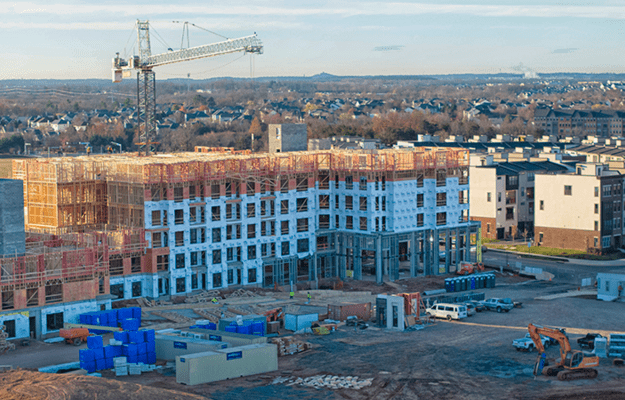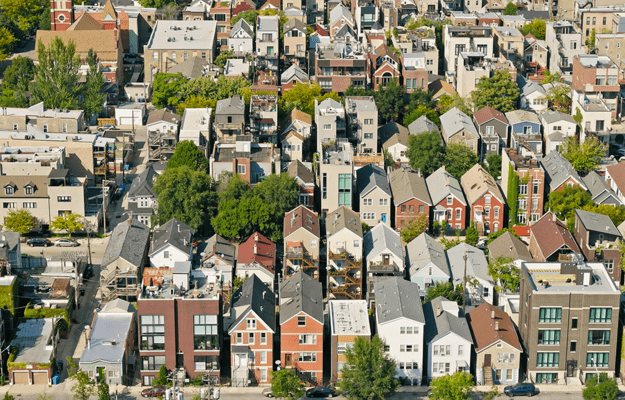
How Do Homeowners Engage in Their Communities? A Q&A with Sociologist Brian McCabe
Across the political spectrum, Americans are united around homeownership. Most Americans aspire to own a home. Homeownership is viewed as an achievement—a central part of the American Dream, in which access to the middle class is available to everyone. Homeowners are perceived as active and engaged citizens, benefiting their communities. And homeownership, even after the mortgage crisis, is viewed as a good investment and a pathway to building assets to support college tuition and retirement.
In the book No Place Like Home: Wealth, Community, and the Politics of Homeownership, Brian McCabe, a sociologist at Georgetown University in Washington, DC, uses survey data and case studies as part of a critical analysis of these perceptions. Are homeowners more engaged citizens? If so, does their engagement benefit communities?
How Housing Matters spoke with McCabe about homeowners’ civic engagement and the potential conflict between stewarding an individual financial asset and focusing on broader community needs. The interview has been edited for length and clarity.
How Housing Matters: What is the current ideology of homeownership?
Brian McCabe: What I am looking at in the book is the idea that homeowners make for better citizens, that homeowners are more actively engaged in their community, that neighborhoods are stronger when citizens own their homes. A significant part of the book is trying to trace that ideology and think about why it is we tend to think of homeowners as better citizens, what we call “an enhanced citizenship hypothesis.” Around the First World War, there was a lot of labor instability and political unrest, and homeownership was viewed as a tool to tie citizens to their communities, give them a stake in economic systems, and make sure workers didn’t rebel. In the book, I wrestle with that belief—which comes up every time policymakers talk about promoting homeownership—that homeowners are better citizens and better community members.
But when homeownership became a tool for building wealth, we don’t give up this idea of homeowners as better citizens.
HHM: How does homeownership’s role as an asset-building tool relate with the idea of homeowners as engaged citizens?
McCabe: Based on data from the Social Capital Community Survey and a handful of civic engagement measures from the Current Population Survey, we do find that homeowners are more engaged than renters in “instrumental” acts of political engagement in their communities, even after controls for age and other factors. But when you look more broadly at engagement—activities like talking and visiting with neighbors, for example—homeowners don’t look all that different from renters.
As sociologists, we talk a lot about civic engagement as an endless good, but I want to put a halt on that. Not all civic engagement is necessarily good civic engagement. When homeowners do engage at higher rates, what are they doing in local politics? What are they engaging in? Why are they engaging in some activities and not others? The answer, which probably rings true to anyone that engages in local politics, is that they often engage to protect property values. That is where the wealth-building view of homeownership comes back in.
In some ways, it is a classic NIMBY [not in my backyard] story. It’s homeowners working to keep things out of their neighborhood that they expect are going to drive property values [down]—even though there is quite a bit of social science research that shows that the things we expect to drive property values down don’t.
The consequence is that homeowners are making neighborhoods more segregated and exclusive than they otherwise would be by keeping non-owners, low-income renters, or affordable housing out of our neighborhoods.
I don’t want to come off as anti-homeowner or against “doing what’s good for property values.” The puzzle that I wanted to raise is that what’s good for property values isn’t necessarily what’s good for communities in a broader sense. Often, the things that homeowners do to protect their property values don’t always make for diverse, inclusive, integrated communities.
HHM: You write about tenure segregation and social stratification between owners and renters. How does this relate to exclusionary civic participation?
McCabe: When we talk about segregation, we tend to talk about racial segregation and income segregation but don’t talk very much about tenure segregation. Renters tend to live in one sort of community, often in the city. Homeowners tend to live in other sorts of communities, often in the suburbs.
Coded in homeowners’ assertions about affordable housing hurting their property values is that they may not want renters in their communities. They may think that renters aren’t nearly as committed to the community and to making it better. It can also be very racially coded language. This is what I mean by tenure segregation—not just the segregation by race or income, but also between owners and renters.
HHM: What affects the other sort of community engagement—engagement that isn’t about property values and exclusion?
McCabe: A lot what drives people to get involved in their communities, especially volunteering and knowing their neighborhoods, is about living in one place a long time. People are more likely to volunteer or join community groups when they live someplace a decade or two decades, even if they are renters.
The public conversation about the civic benefits of homeownership confuses two different things. On the one hand, what is the effect on community engagement from buying a home instead of renting one? On the other, what is the effect on community engagement from living in a place a long time, rather than a short period of time, regardless of whether you own or rent?
While homeowners overall are more stable than renters, we could imagine a world where we encourage people to live in a community for a long period of time. Renters don’t have to be more unstable than homeowners are.
HHM: How would you suggest policymakers reduce self-interested civic engagement and encourage stability across tenures?
McCabe: I think you have to start with the mortgage interest deduction. We have become so reflexive in talking about homeowners as better citizens that it has become part of the lingo in the policy world without considering whether it is true, why it is true, and whether that is even the goal of housing policy. The mortgage interest deduction is not only regressive in that it basically goes to wealthy people, and inefficient in that it does not transform anyone that is on the margin into homeownership, but it encourages us to view our houses as financial investments rather than as places to live, places to settle down. You could imagine a different sort of tax incentive that rewards or incentivizes living in the same house or community over time.
For people who believe American housing policy should promote homeownership, the mortgage interest deduction isn’t doing that. So we should reform the deduction. For those who don’t believe that housing policy should promote homeownership, the mortgage interest deduction isn’t achieving their goals either. Economists are pretty much unanimous on the mortgage interest deduction. Very few people think it does what it ostensibly was intended to do.
HHM: How does your book aim to change the current thinking on homeownership?
McCabe: When we think about homeownership, we should separate ideas about housing as an asset from ideas about homeownership as a way to encourage residential stability. We have long conflated these things, saying that homeownership is good because it promotes residential stability and it promotes asset ownership. Both may be good, but they lead to different behaviors. Stability might lead you to be a better volunteer in your community, while asset ownership may lead you to be a property value warrior.


